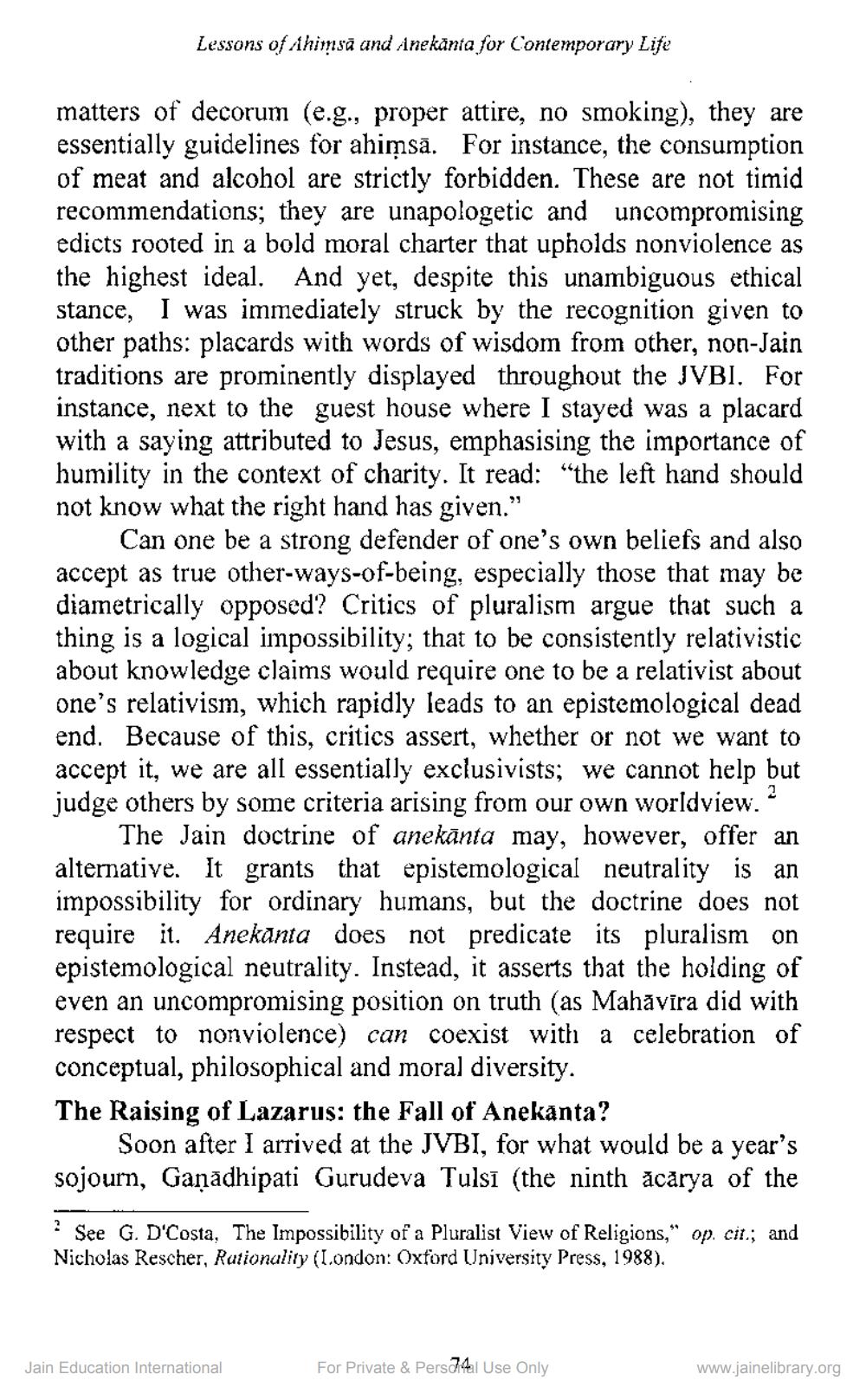Book Title: Anekanta Ahimsa and Question of Pluralism Author(s): Anne Vallely Publisher: Z_Lessons_of_Ahimsa_and_Anekanta_for_Contemporary_Life_014006.pdf View full book textPage 2
________________ Lessons of himsā and inekänta for Contemporary Life matters of decorum (e.g., proper attire, no smoking), they are essentially guidelines for ahimsā. For instance, the consumption of meat and alcohol are strictly forbidden. These are not timid recommendations; they are unapologetic and uncompromising edicts rooted in a bold moral charter that upholds nonviolence as the highest ideal. And yet, despite this unambiguous ethical stance, I was immediately struck by the recognition given to other paths: placards with words of wisdom from other, non-Jain traditions are prominently displayed throughout the JVBI. For instance, next to the guest house where I stayed was a placard with a saying attributed to Jesus, emphasising the importance of humility in the context of charity. It read: "the left hand should not know what the right hand has given." Can one be a strong defender of one's own beliefs and also accept as true other-ways-of-being, especially those that may be diametrically opposed? Critics of pluralism argue that such a thing is a logical impossibility; that to be consistently relativistic about knowledge claims would require one to be a relativist about one's relativism, which rapidly leads to an epistemological dead end. Because of this, critics assert, whether or not we want to accept it, we are all essentially exclusivists; we cannot help but judge others by some criteria arising from our own worldview. - The Jain doctrine of anekānta may, however, offer an alternative. It grants that epistemological neutrality is an impossibility for ordinary humans, but the doctrine does not require it. Anekanta does not predicate its pluralism on epistemological neutrality. Instead, it asserts that the holding of even an uncompromising position on truth (as Mahavira did with respect to nonviolence) can coexist with a celebration of conceptual, philosophical and moral diversity. The Raising of Lazarus: the Fall of Anekanta? Soon after I arrived at the JVBI, for what would be a year's sojourn, Gaņādhipati Gurudeva Tulsī (the ninth acārya of the . See G. D'Costa, The Impossibility of a Pluralist View of Religions," op. cit.; and Nicholas Rescher, Rationality (London: Oxford University Press, 1988). Jain Education International For Private & Pers741 Use Only www.jainelibrary.orgPage Navigation
1 2 3 4 5 6 7 8 9 10
